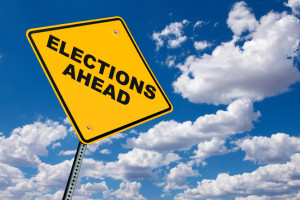 The most compelling races in Arkansas this November won’t be the big ones – governor, Congress, etc. Republicans probably are going to win all of them, and most of them easily.
The most compelling races in Arkansas this November won’t be the big ones – governor, Congress, etc. Republicans probably are going to win all of them, and most of them easily.
Instead, the county races may be the ones most worth watching. That’s because this could be the election cycle where Republicans become the majority party in Arkansas.
Republicans now control every U.S. congressional office, all statewide races, and about three-fourths of the Legislature. And it’s mostly happened since 2010, the election following the election of President Obama. Before that, Arkansas was a one-party state – in fact, one of the nation’s one-partiest – controlled by Democrats.
But for all of their dominance at the state and national levels, Republicans still hold only a minority of partisan elected seats statewide, according to their own count. GOP Chairman Doyle Webb says that of 1,524 partisan offices ranging from justice of the peace up to the major state and national offices, Republicans control 620, or only 41 percent.
That’s county judges, sheriffs, county clerks, etc. It doesn’t include constables, who are part-time law enforcement officials. It also doesn’t include city officials, who in many places are elected on a nonpartisan basis.
Red in state and national elections, blue in local ones
The Republican takeover has been slower to take hold at the local level for several reasons. One is term limits. Governors and state legislators have them; your sheriff does not. The power of incumbency remains strong, and the incumbents at the local level have been mostly Democrats. Moreover, it’s easier for voters to ignore an officeholder’s party association when it’s their neighbor or fellow church member than it is some distant lawmaker.
So while Arkansas is a red state, it’s not been accurate to call it a Republican one. Instead, it has a split personality – red in state and national offices, bluer in local ones, and almost 60 percent Democrat overall.
But Webb said that could change this year. A gain of 143 partisan offices at the national, state and county levels would give Republicans an overall advantage. He says Republicans currently hold 505 county offices, and this year 851 candidates filed at that level – a higher number by 346, although some will be running against each other in contested primaries.
One example of the state’s political about-face is eastern Arkansas, until only a few years ago a Democratic stronghold like the rest of the state. No Democrats are running for county judge in Craighead (biggest city – Jonesboro), Poinsett (Harrisburg), Arkansas (Stuttgart) or Mississippi (Blytheville) counties, though an independent is running in Mississippi County. The county judges in Poinsett and Arkansas counties were originally elected as Democrats but have switched parties and become Republicans. Meanwhile, in south Arkansas the sheriffs of Union (El Dorado) and Columbia (Magnolia) counties, both elected as Democrats, filed as Republicans.
Democrats are trying
It’s not a hopeless time for Arkansas Democrats. As their party’s chairman, Rep. Michael John Gray, D-Augusta, points out, Democrats will be trying to regain some of the ground they’ve lost, and trying to take ground elsewhere. For example, they’re contesting most justice of the peace positions in all-Republican Saline County (Benton and Bryant). Eventually, demographic and population changes in Northwest Arkansas’ Benton and Washington counties could give Democrats a chance to win some races there. Moreover, the Democrats’ base is fired up after President Trump’s election in 2016. Democrats are on a winning streak in special elections across America, even winning in areas won easily by Trump in 2016. And, as Gray reminded me, we’re only eight years removed from Gov. Mike Beebe winning all 75 counties as a Democrat.
Still, while a blue wave could hit other states this year, a red tide is still flowing over Arkansas.
It’s already swamped state and national offices and probably isn’t going to recede there this cycle. After this election, Republicans likely will still control all the congressional and statewide offices and about the same number of legislative seats as now.
The action, then, will be at the county level, where both parties’ grass roots are planted with local candidates and watered with local money. Watch those races this November.
By Steve Brawner
© 2018 by Steve Brawner Communications, Inc.